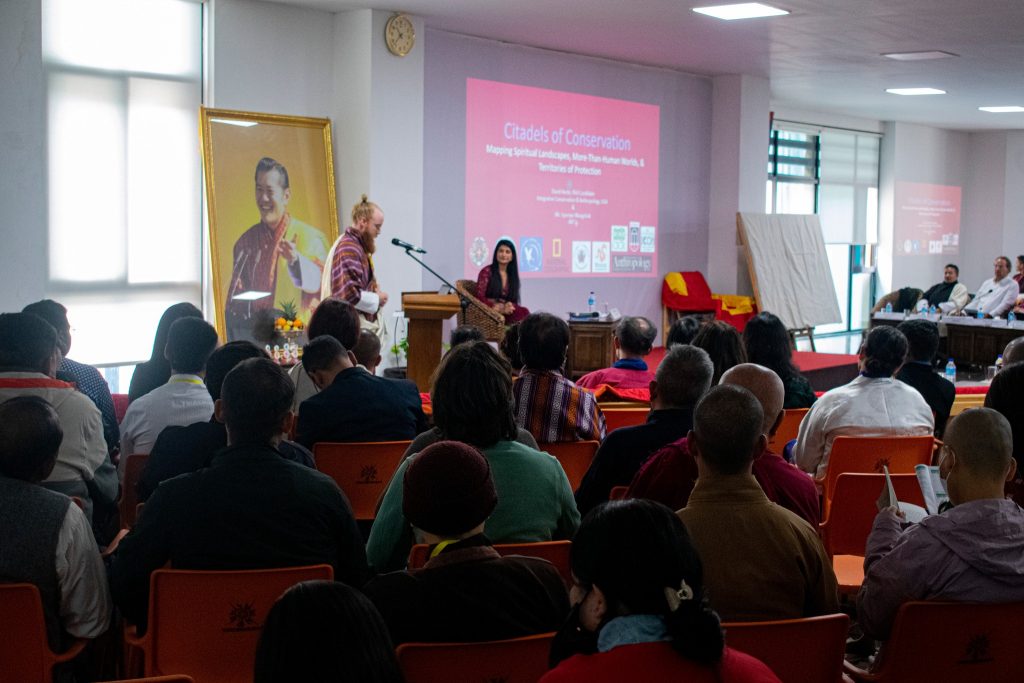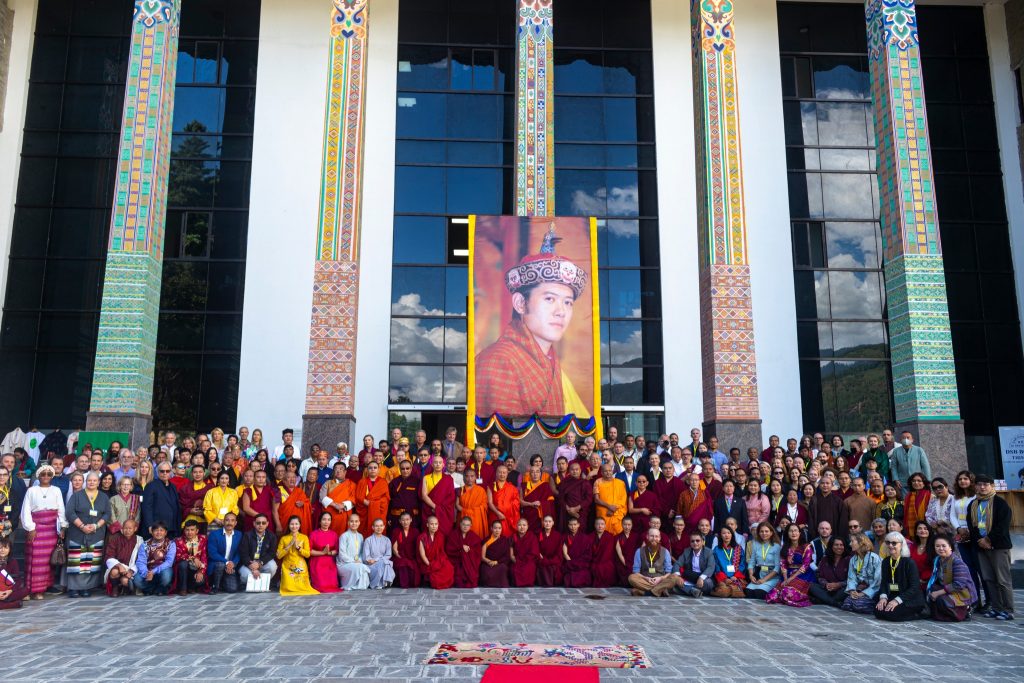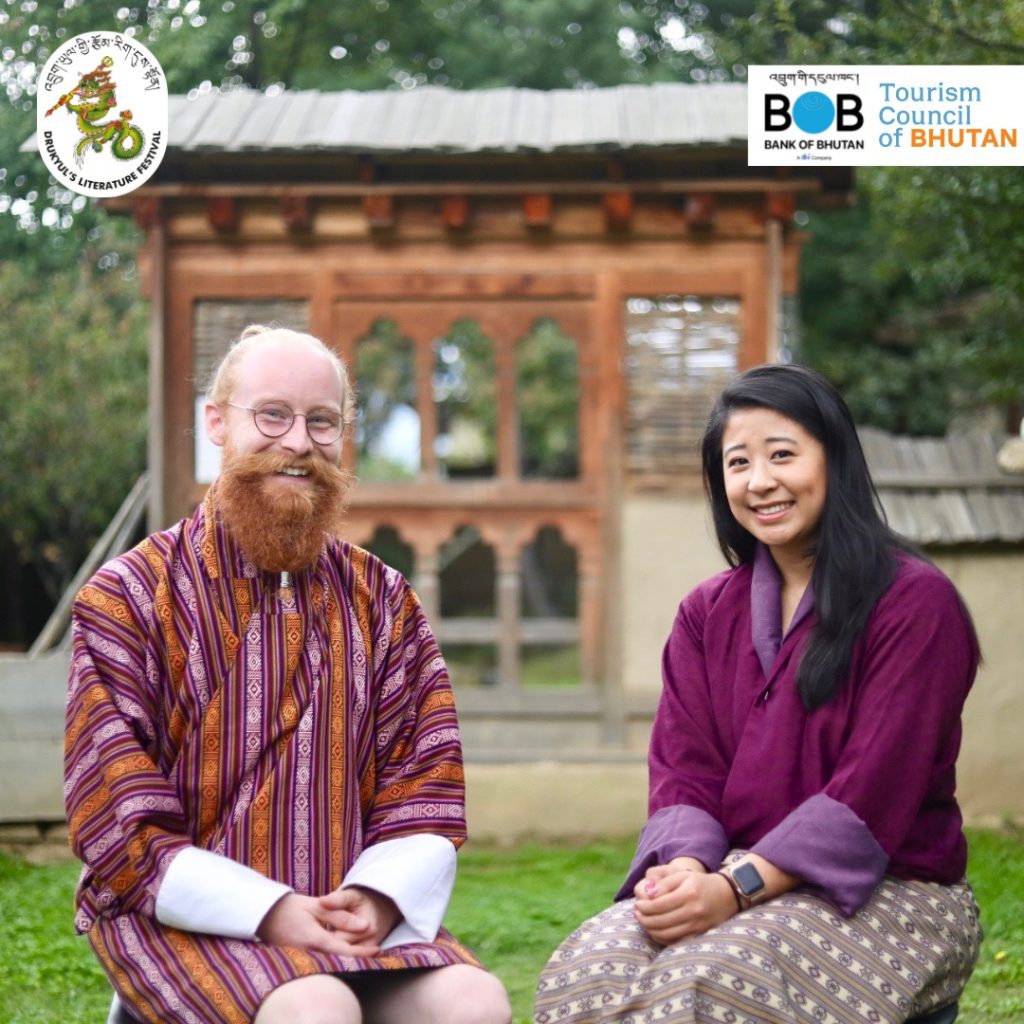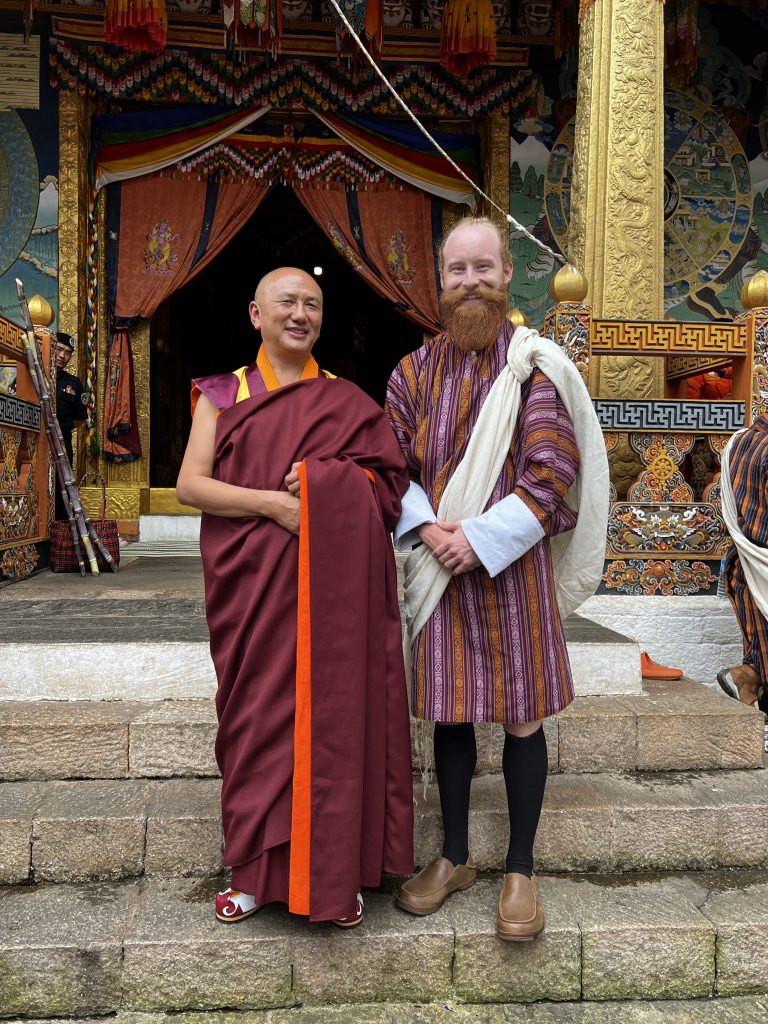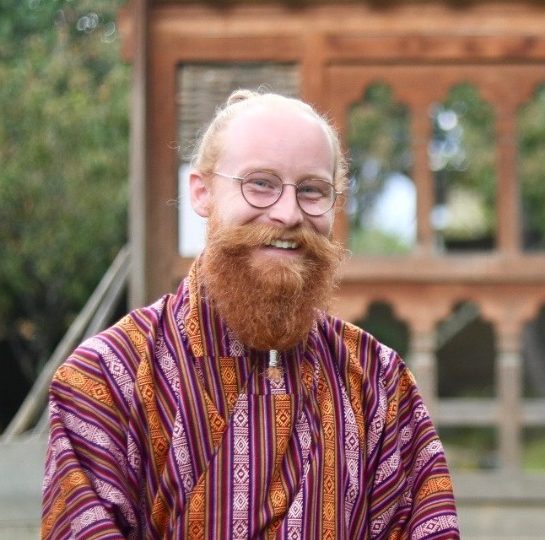David Hecht, PhD Candidate in Integrative Conservation (ICON) & Anthropology presented his doctoral research at the 4th International Vajrayāna Buddhism Conference (IVBC), with research collaborator & traditional-contemporary artist, Mr. Gyempo Wangchuk. The theme for IVBC 2022 was “Modernization of Buddhism”, hosted by the Centre for Bhutan & GNH Studies, the Zhung Dratshang གཞུང་གྲྭ་ཚང་། Central Monastic Body of Bhutan, and the International Buddhist Confederation. This was an opportunity to share the results of their collaborative research with community partners in Bhutan who made it possible, and re-catalyze conversations with partnering agencies to advance strategic research goals and community project momentum beyond his PhD research.
In his research, David works together with local people involved in long-term, community-based conservation programs across the Kingdom’s high-altitude wetland & riverine communities that are important wintering habitats for migrating Black-necked Cranes and the Critically-endangered White-bellied Herons, respectively. They use participatory methodologies to map spiritual landscape dynamics in sites of conservation importance to illuminate community relationships with unseen beings that share the same physical space as non-human wildlife and humans, namely local deities and more-than-human spirits- gods of the territory (yul lha) and settlement (gzhi bdag) amongst other local deity types (tsen, gnas po, rgyal po) – who are known to occupy territory in trees, forests, cliffs, mountains, springs, and lakes.
David presented his paper “Citadels of Conservation: Mapping Spiritual Landscapes, More-than-human Worlds, & Territories of Protection” in a panel session on Tantra Geographies that held discussions on the geography of enlightenment, environmental legacies of Buddhist masters, and the cosmopolitical ecologies and interfaces between local deities, more-than-human spirits, and the environment in the Kingdom and the Eastern Himalayas, and its implications for conservation decision-making and sustainable development.
David received an International Graduate Student Travel Grant from the Graduate School, and funding awards from the Center for Integrative Conservation (CICR) and the Anthropology Department, to travel for two weeks to Bhutan and present on this chapter of his dissertation. While there, David was featured in the 9th episode of the Drukyul Digital Salon, hosted by Bhutan Echoes, an organization that coordinates and produces events to promote literature, cultural, and art in Bhutan, culminating in the 2023 Drukyul’s Literature Festival, an annual international event held in the Kingdom. In the interview, they discussed how Bhutan’s globally-recognized environmental leadership is derived, in part, from the influence of traditional & indigenous knowledge, Vajrayana Buddhism, and pre-Buddhist belief systems.
To learn more about David’s research and to watch him in the latest episode of Bhutan Echoes’ Drukyul Digital Salon, click here: https://www.youtube.com/watch?v=eKhiTE1T8rg
